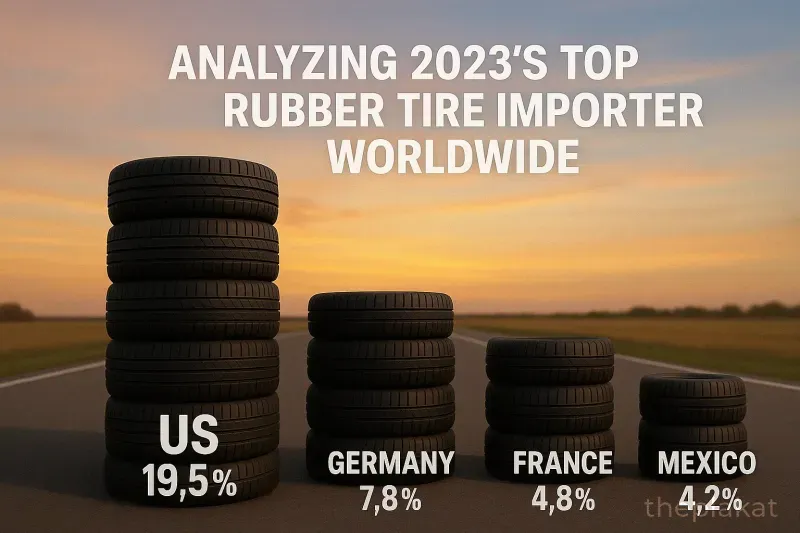Published
in Economy
In 2023, global rubber tire imports have predominantly been dominated by a few key players. The United States stands at the forefront, significantly impacting international trade in this sector.
The U.S. has clinched a crucial position with nearly 20% share in global imports. This is linked to its expansive consumer base and robust road transportation infrastructure, which together foster high demand.
Both Germany and France stand out as major importers in Europe, with Germany approaching an 8% market share. This highlights their substantial automotive industries' reliance on foreign tire imports to meet demand.
In the North American market, Mexico and Canada collectively represent a significant import node. Accounting for more than 7% collectively, these nations strengthen the North American import market footprint.
Despite the prominence of major importers, there is a diverse cluster of countries with under 1% shares each. Together, their collective presence ensures a broader distribution of global tire demand, often underestimated in macroeconomic analyses.

The demand is driven by the expansive automotive sector, logistical infrastructure needs, and the large consumer market, all of which necessitate continuous replenishment of rubber tires.
Germany and France have well-established automotive industries and consumer bases demanding high-quality rubber tires, driving their large import volumes.
'The rest' refers to multiple countries each contributing less than 1% to global tire imports. Collectively, they indicate a widespread and diverse market demand for rubber tires worldwide.
Examining smaller importers together provides insights into market diversification and indicates how dispersed economic activity shapes industry demands beyond major players.